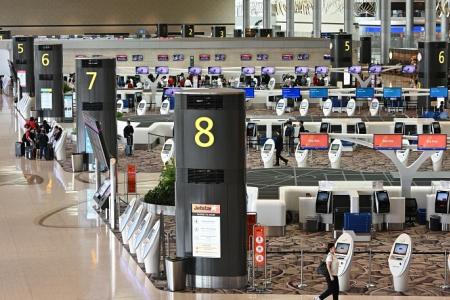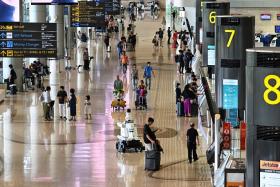How Changi Airport’s charges compare with those of other airports
An increase in the fees and levies that passengers will need to pay when departing from Changi Airport puts Singapore high on the list of the most expensive air hubs, said aviation analysts.
While the increase in fees is necessary to fund infrastructural projects and offset rising costs, it may lead to a reduction in budget flights to smaller cities, where demand is more sensitive to price hikes.
The higher fees may also put Changi Airport at a disadvantage against other regional hubs with lower costs, analysts told The Straits Times.
Already, the $65.20 in fees and taxes that travellers pay when booking a flight from the airport today is more than double those of Kuala Lumpur International Airport and Bangkok’s Suvarnabhumi Airport.
From April 2027, fees levied on departing passengers at Changi will go up in stages, reaching a total of $79.20 in April 2030 – a 21 per cent jump.
Assistant Professor Awad Khireldin, who teaches air transport management at the Singapore Institute of Technology, said Singapore’s aviation charges remain competitive when compared with major air hubs in Europe and the US.
But the latest fee hike may deter budget-conscious travellers and impact route planning and pricing for airlines, as Changi would appear to be costlier than regional hubs such as Bangkok and Hong Kong, he added.
Mr Mayur Patel, head of Asia at aviation data consultancy OAG Aviation, said the hike in fees at Changi Airport is necessary in today’s high-inflation environment, and airports worldwide are adjusting their charges in response to cost pressures.
ST looks at how the departure fees for passengers here stack up against those of other major airports.
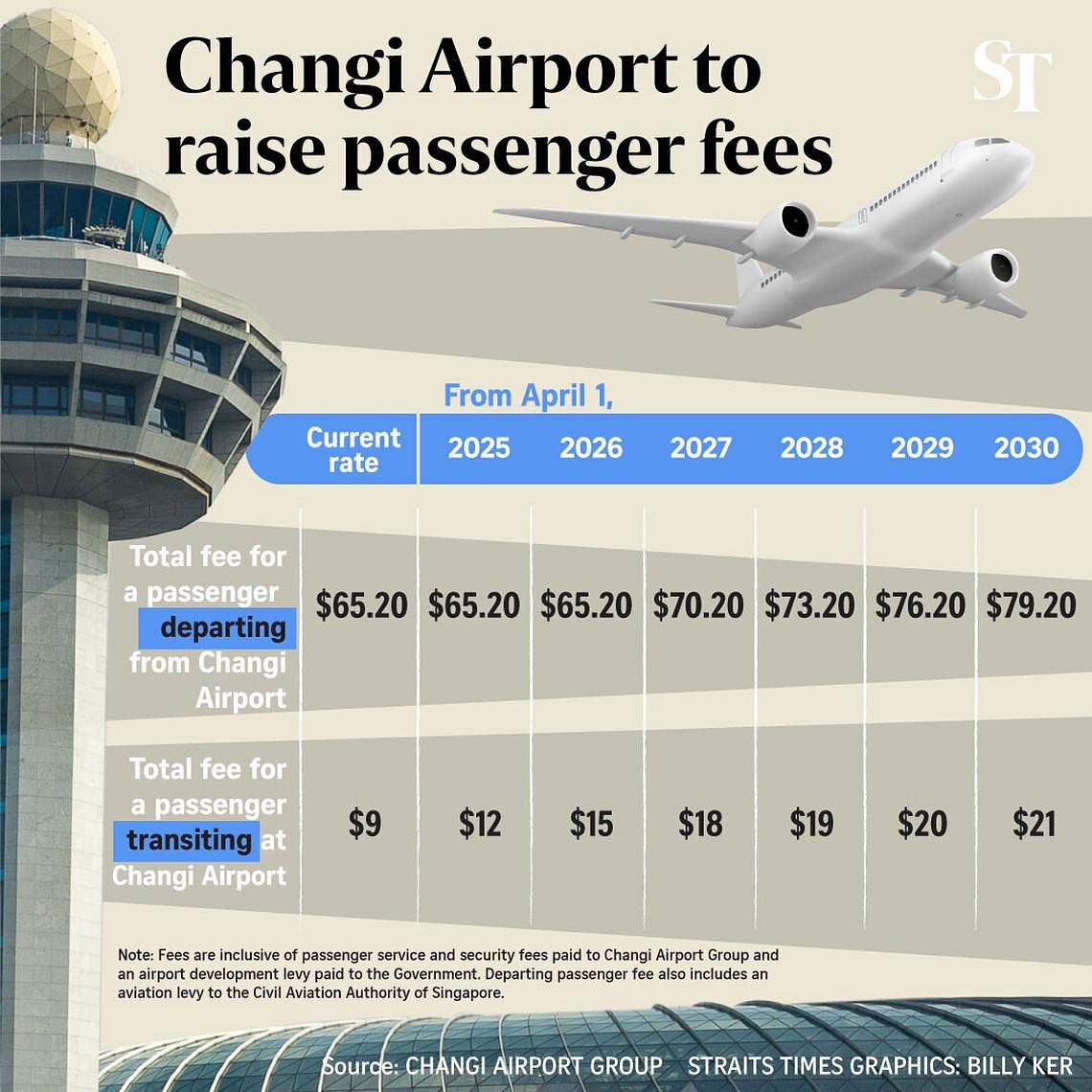
Singapore (Total: $65.20 before fee hike)
The Civil Aviation Authority of Singapore (CAAS) and Changi Airport Group (CAG) said on Nov 7 that the higher airport charges over the next six years, which also include fee hikes for transit passengers and airlines, will be used to cover rising costs and fund a $3 billion investment in airport infrastructure.
The main increase for departing passengers is a hike to the $46.40 service and security fee that CAG collects to fund its operations. This will rise by $3 a year for four years from 2027.
There will also be a one-off increase in 2027 to an aviation levy used to fund CAAS’ operations – from $8 to $10. Meanwhile, a $10.80 levy the Government collects to fund developments in Changi East, like Terminal 5, will remain unchanged.
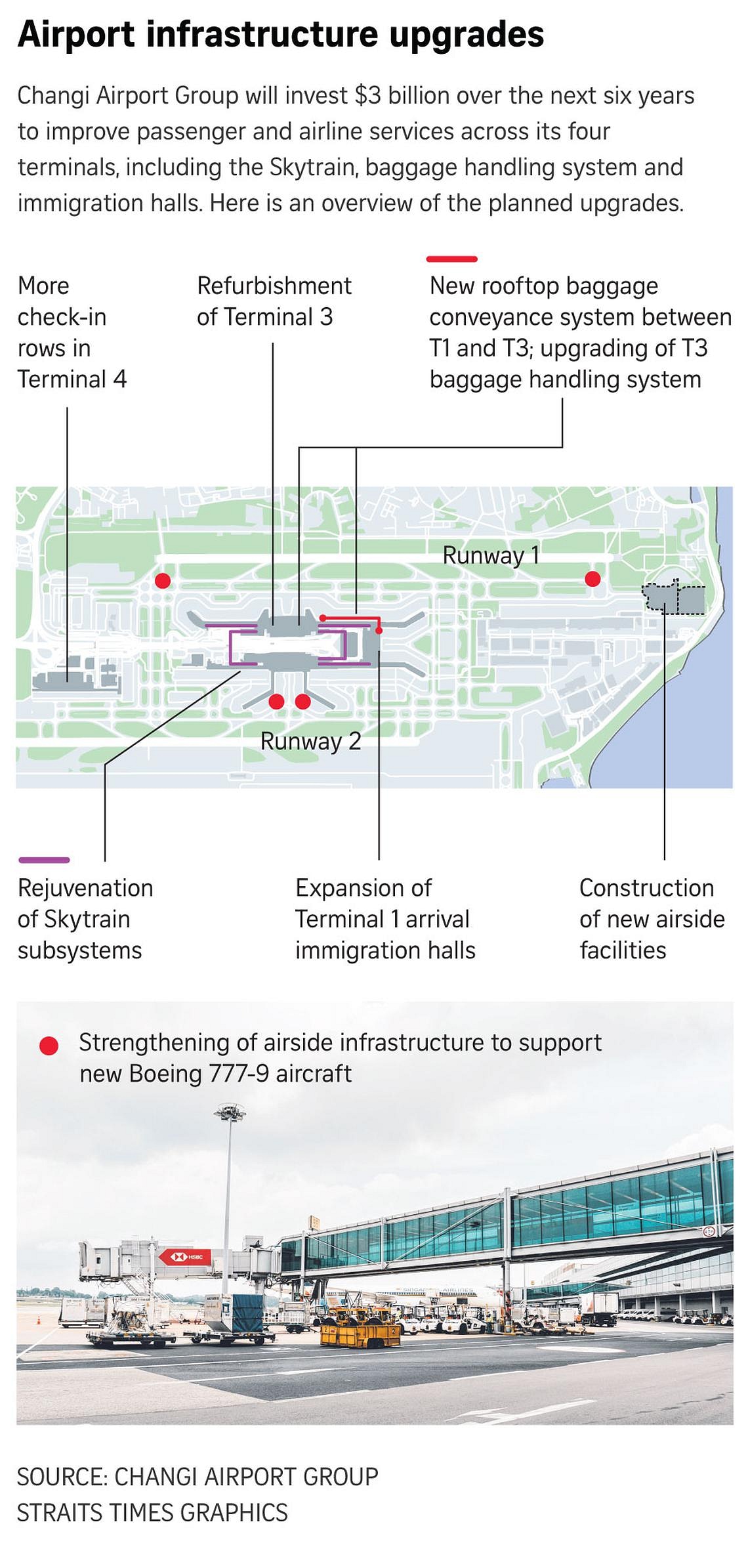
Hong Kong (Total: $45 to $60 before hike)
In comparison, passengers departing from Hong Kong International Airport (HKIA) currently pay between HK$265 (S$45) and HK$355 in airport fees and taxes, depending on cabin class and flight distance.
They include a HK$120 departure tax collected by the territory’s civil aviation authority, and a variable airport construction fee used to fund a new three-runway system opening later in November.
Departing passengers also pay a HK$55 security charge to Hong Kong’s airport authority. This will rise to HK$65 from 2025, and could go up to HK$75 from 2027, depending on traffic growth and demand. The higher security fee will fund a new smart passenger security screening system at HKIA and expand security coverage.
Manila (Total: $12 before hike)
At Ninoy Aquino International Airport in the Philippines, international passengers pay a 550 peso (S$12) service charge. But this will rise to 950 pesos by September 2025 – the first increase in passenger terminal fees since 2000.
The fee hike comes after Manila’s main airport was turned over to a new private operator led by Philippine conglomerate San Miguel.
The higher fee will fund a major overhaul of the airport, including the expansion of the terminal buildings and improvements to facilities like the toilets and escalators.
Capacity at the airport is expected to almost double, from 32 million passengers to around 60 million to 62 million. In addition to the airport's service charge, a travel tax of between 300 and 2,700 pesos is levied by the Philippine government on departing passengers, but this applies only to Filipino citizens and certain categories of foreigners. Tourists visiting the Philippines for less than one year are exempt from the tax.
Amsterdam (Total: $100 before hike)
For departing passengers at Schiphol Airport in Amsterdam, their airport fees comprise a passenger service charge, a security service charge and a state tax. These amount to about €70 (S$100) today.
On Oct 31, Schiphol announced a series of fee adjustments between 2025 and 2027 for passengers and airlines, citing soaring inflation and rising interest rates. The funds collected will also be used to improve services for airlines and passengers, and working conditions for airport staff, the airport said.
In April 2027, departing passengers will pay €74 in airport fees and taxes. For airlines, their fees will rise by 37 per cent over three years – a move that has been slammed by the Netherlands’ flag carrier, KLM.
Bangkok (Total: $30)
At Suvarnabhumi Airport and five other Thai airports, a passenger service charge for international travellers was raised from 700 baht (S$27) to 730 baht in April to cover the cost of a new automated passenger processing system.
After including an international departure and arrival fee of 15 baht and an advance passenger processing user charge of 35 baht, those flying out of Bangkok’s main airport now pay 780 baht in airport charges and levies.
Seoul (Total: $24)
The price of an international flight out of Seoul’s Incheon Airport includes 25,000 won (S$24) in airport fees and taxes. These comprise a 17,000 won passenger service charge, a 7,000 won departure tax and a 1,000 won fee that goes towards an international disease elimination fund.
The departure tax was originally 10,000 won, but the South Korean government reduced it in July to lower the burden on travellers.
Dubai (Total: $45)
Travellers flying out of Dubai International Airport – a major air hub in the Middle East – pay four different airport charges and fees totalling 125 dirhams (S$45). They include a passenger service charge, facilities charge, and a safety and security fee.
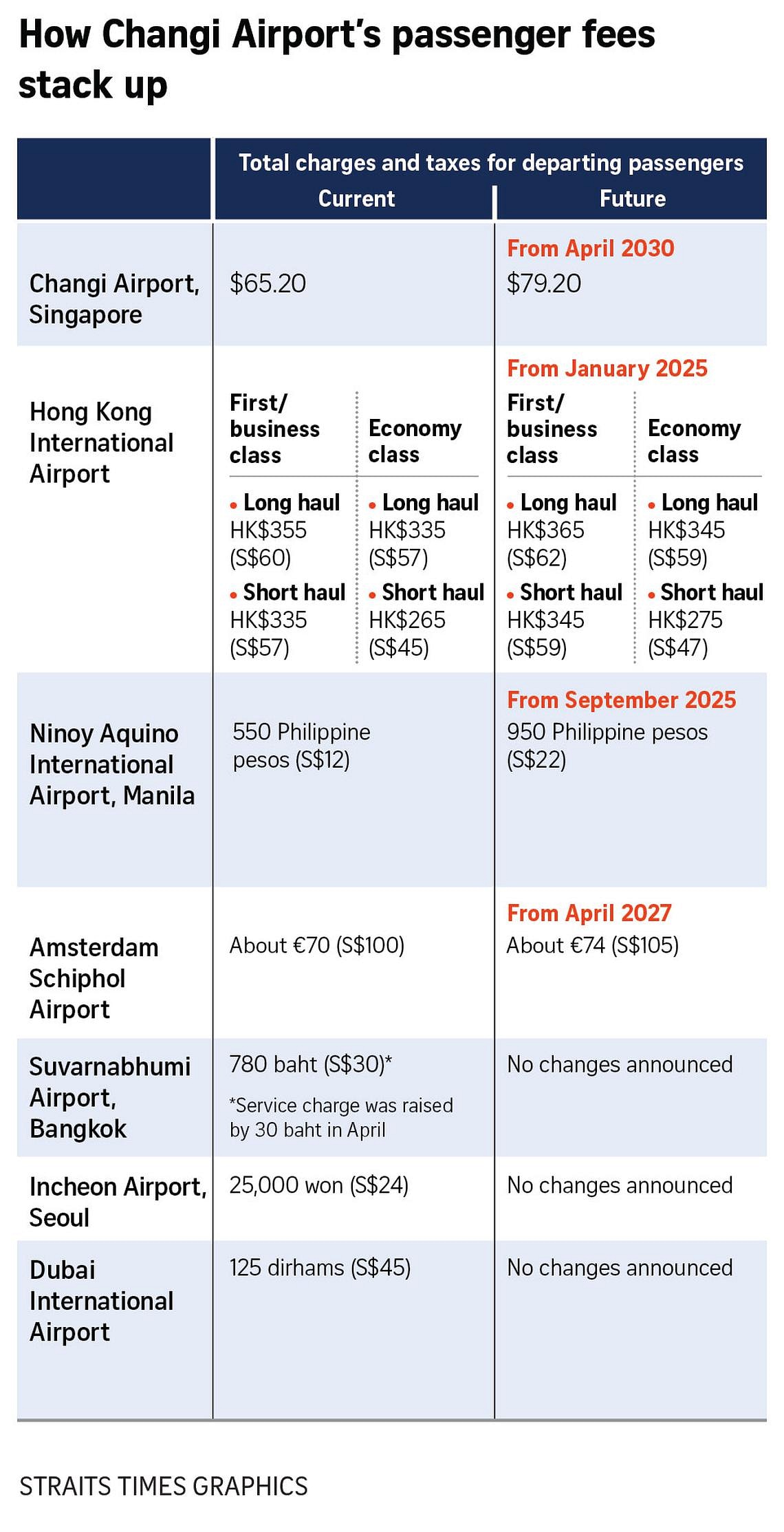
Get The New Paper on your phone with the free TNP app. Download from the Apple App Store or Google Play Store now

